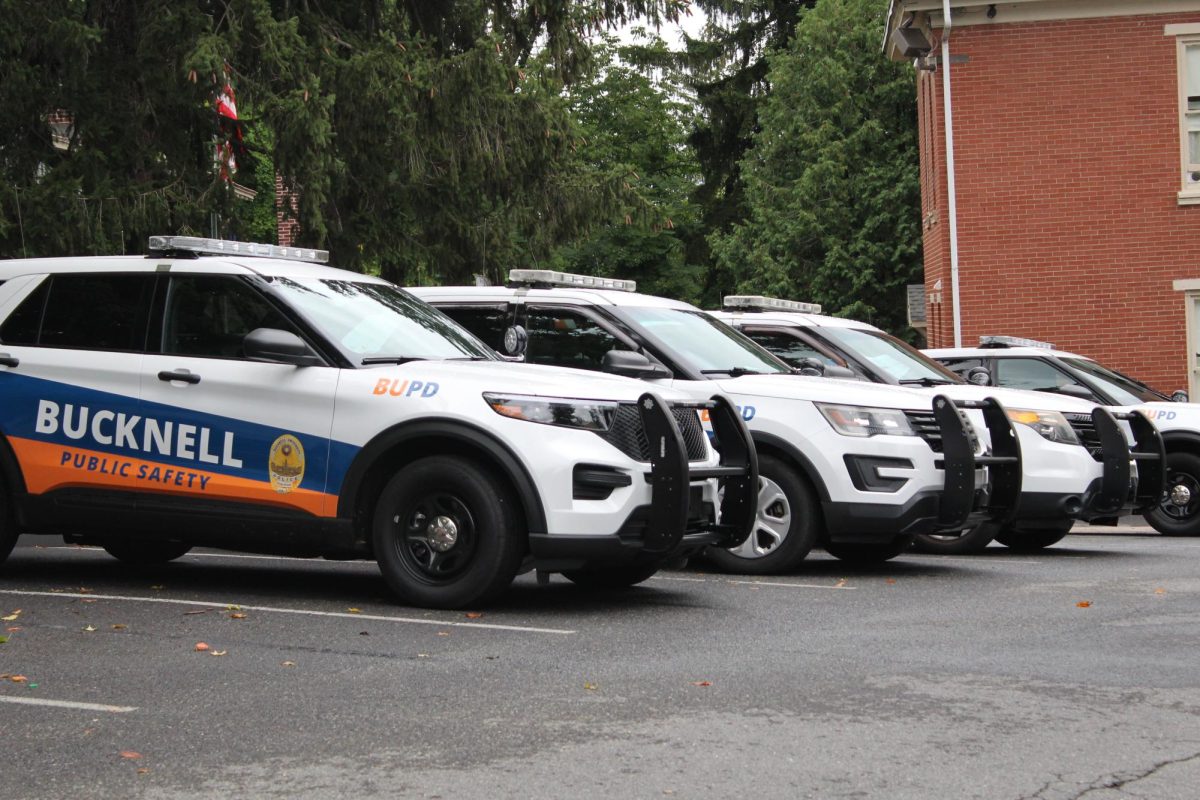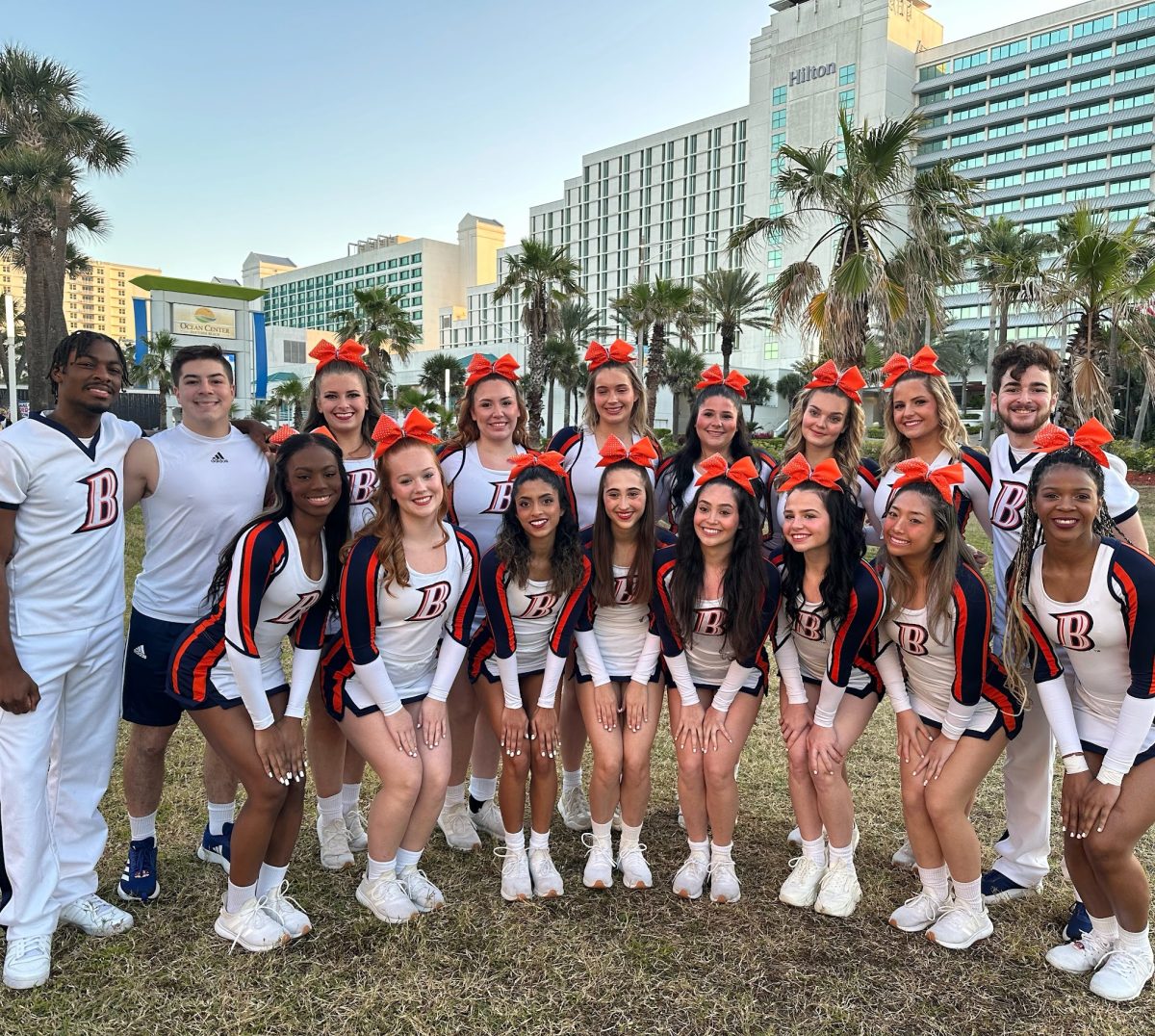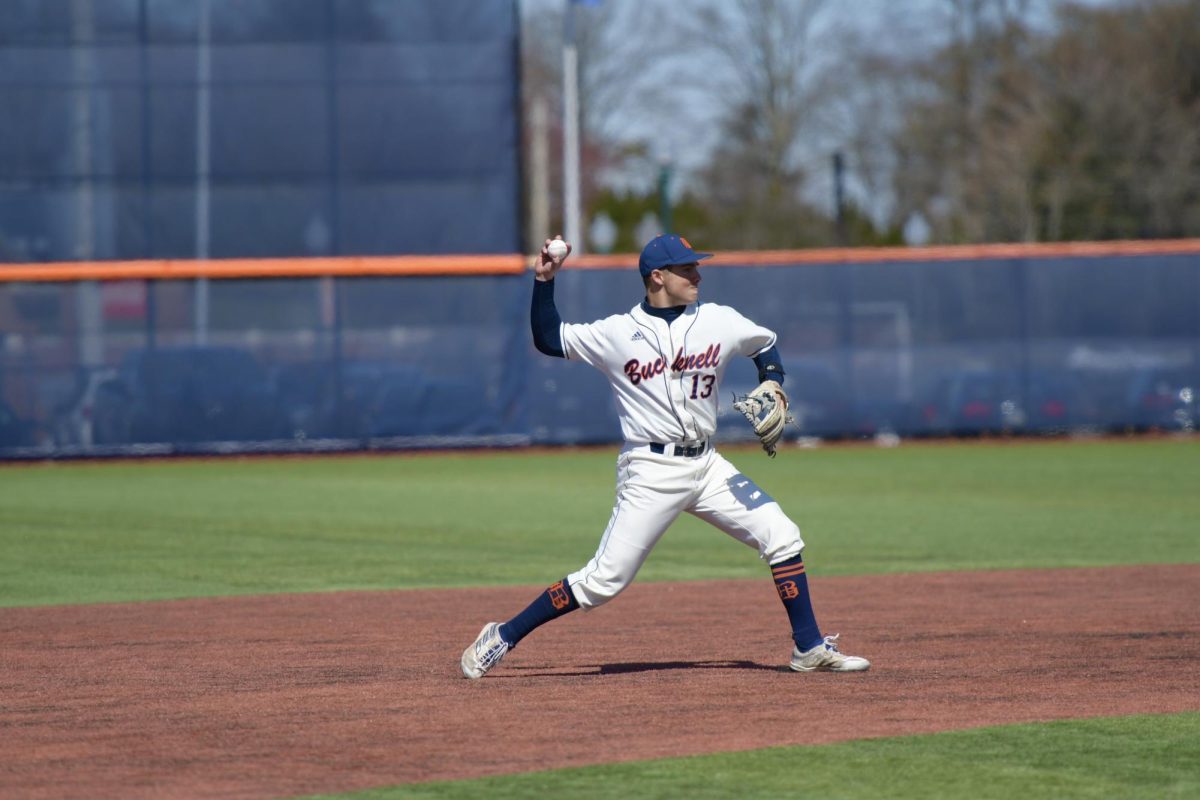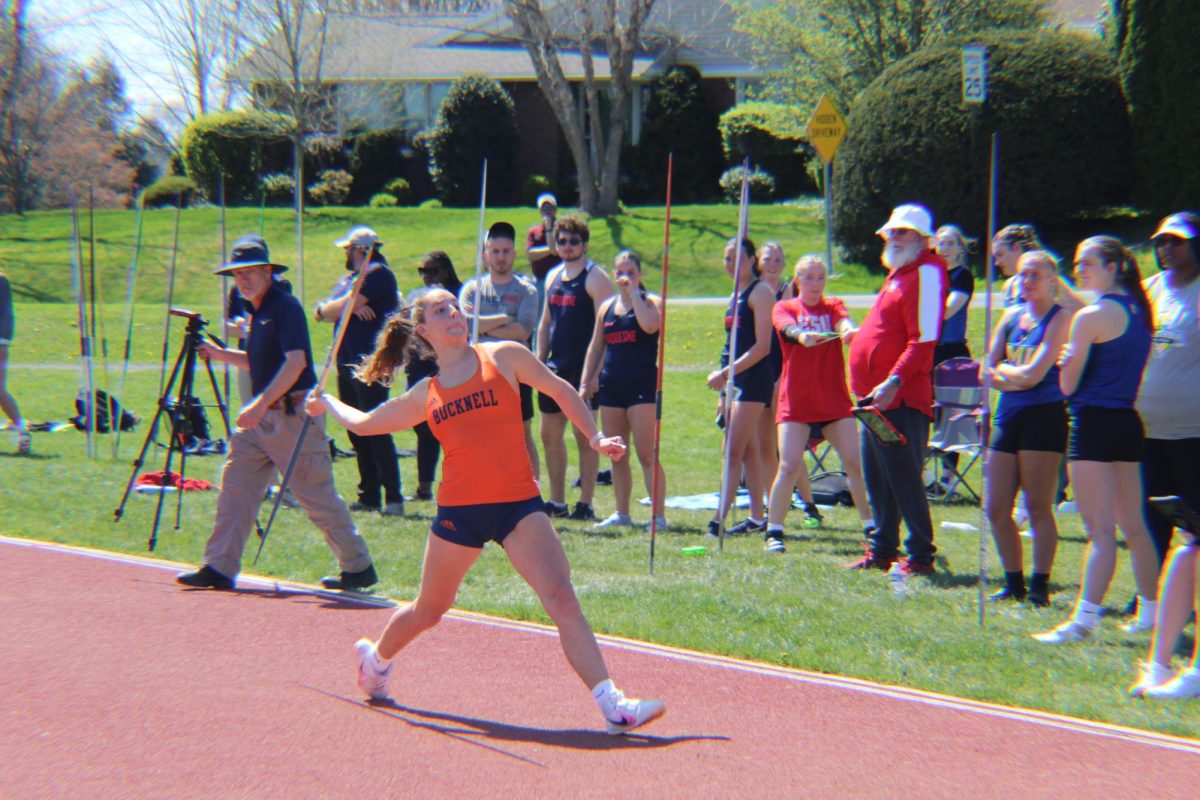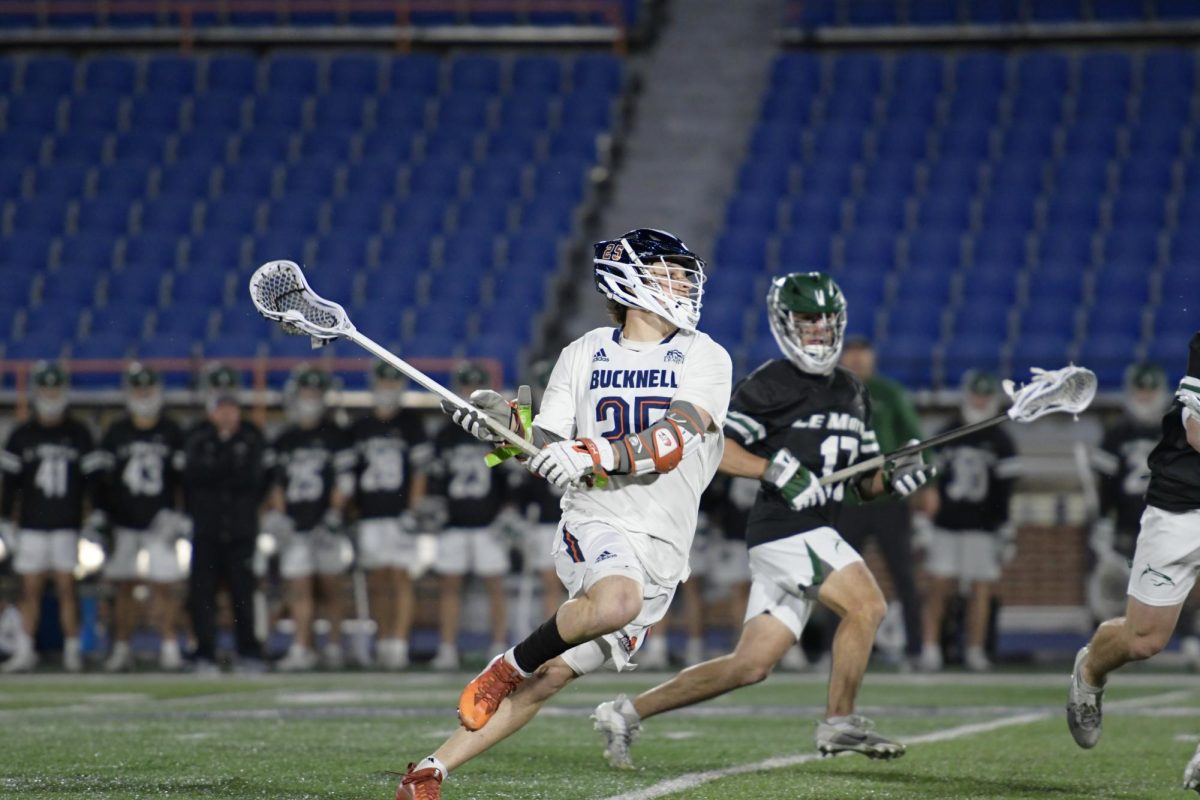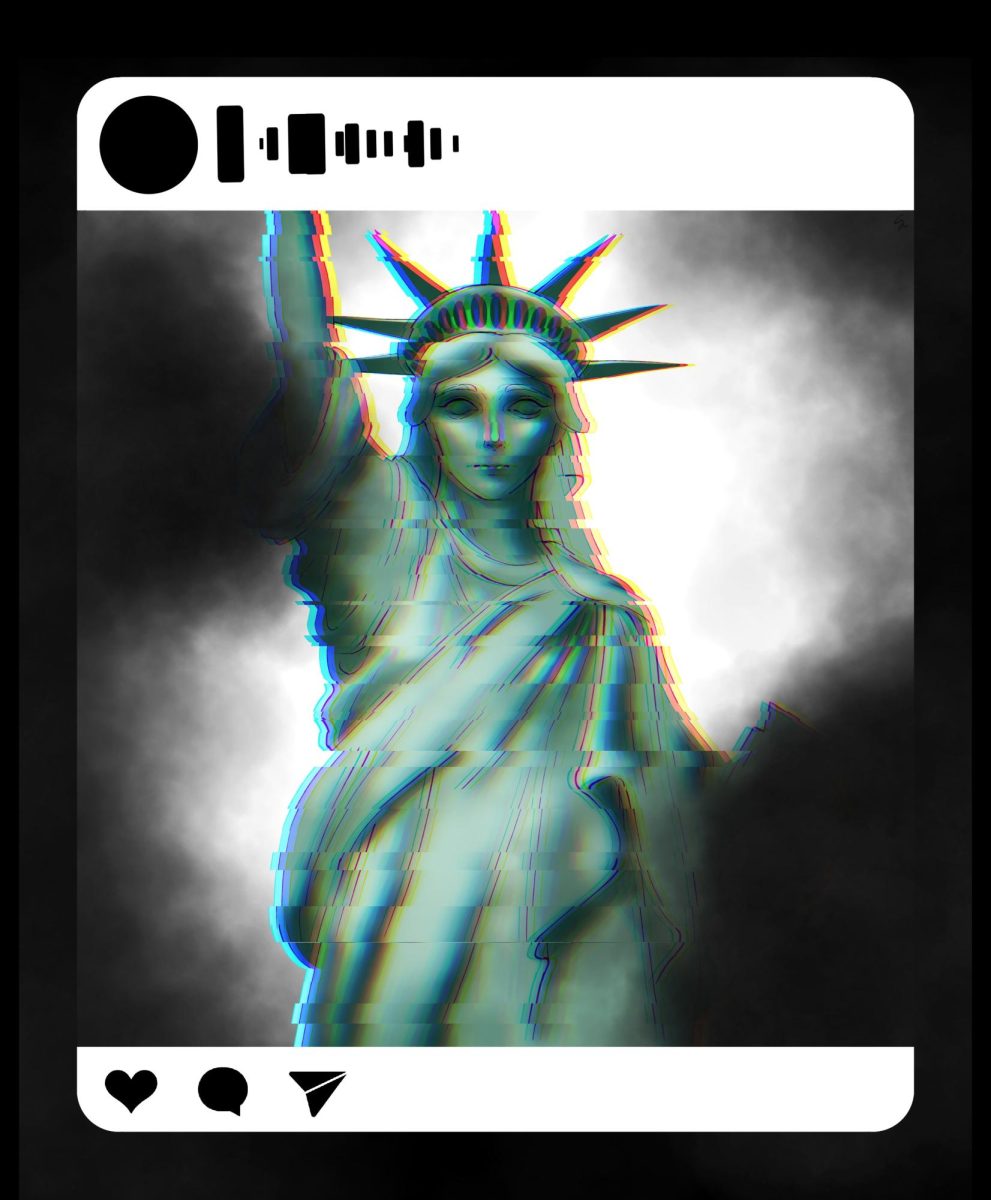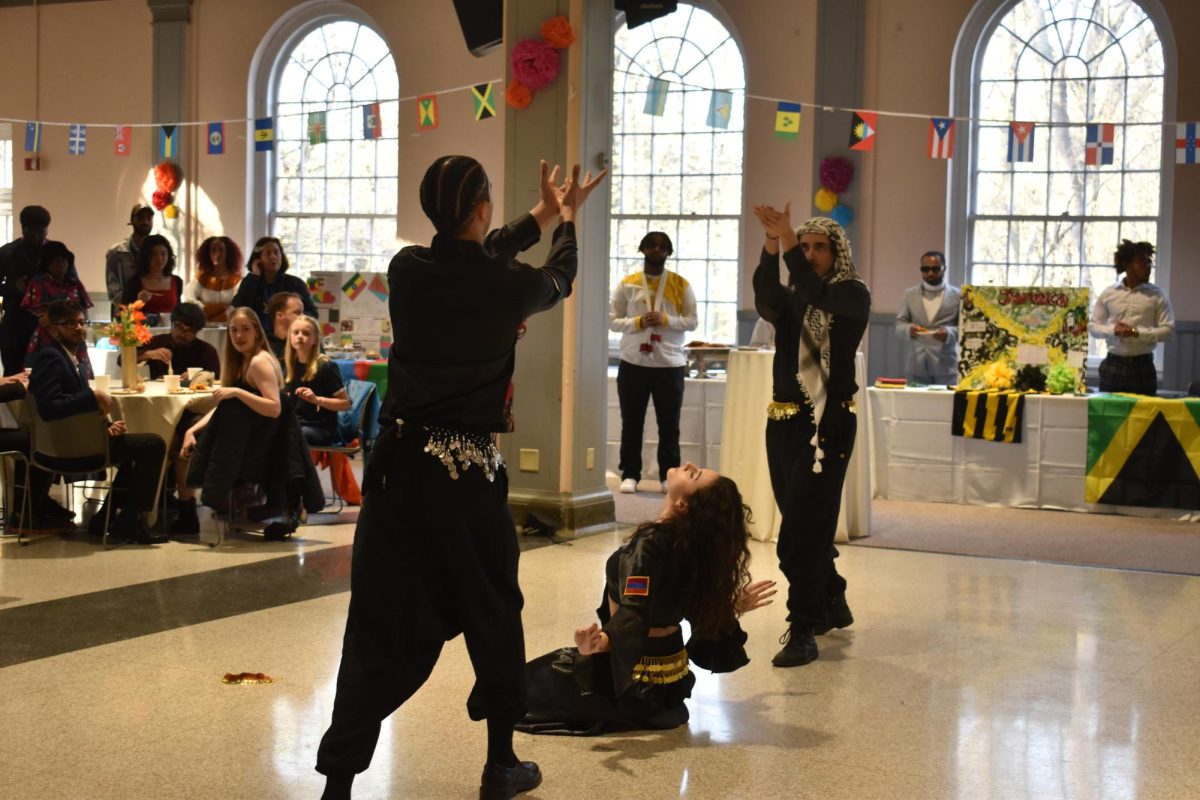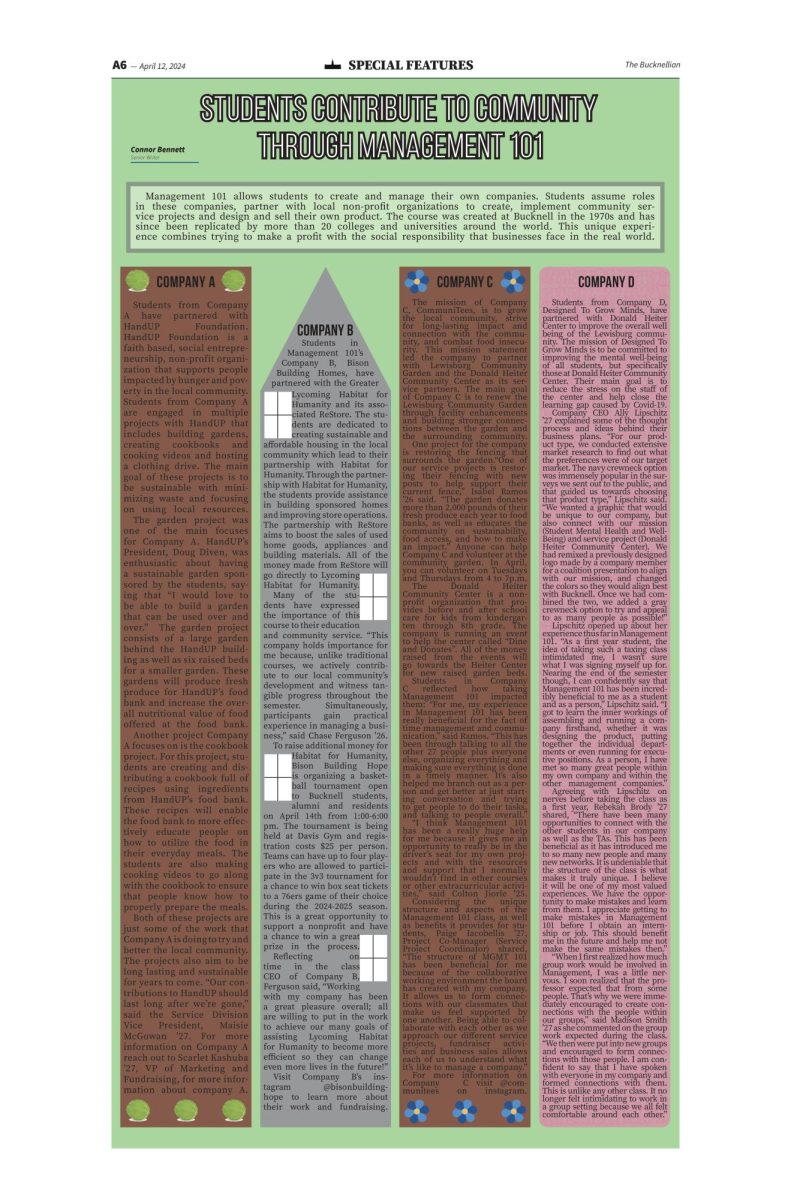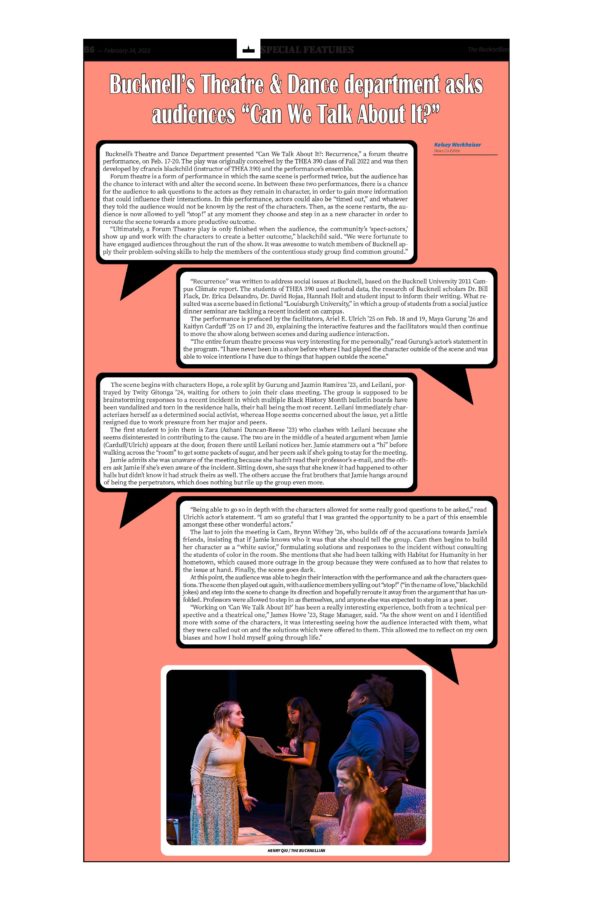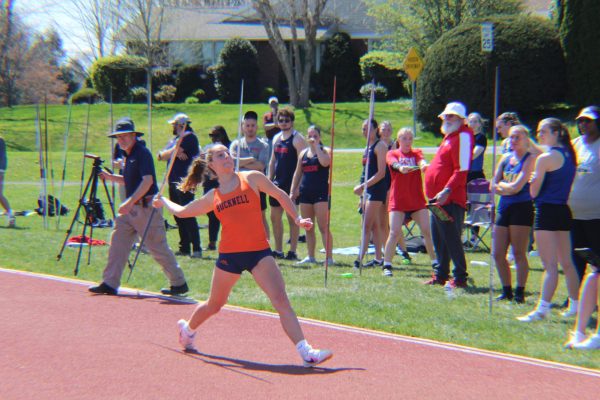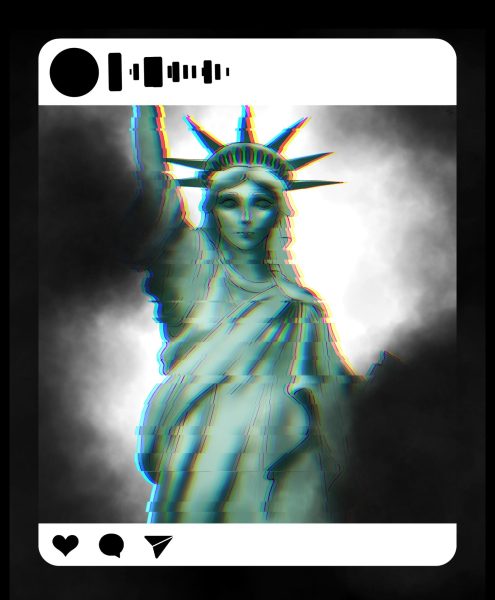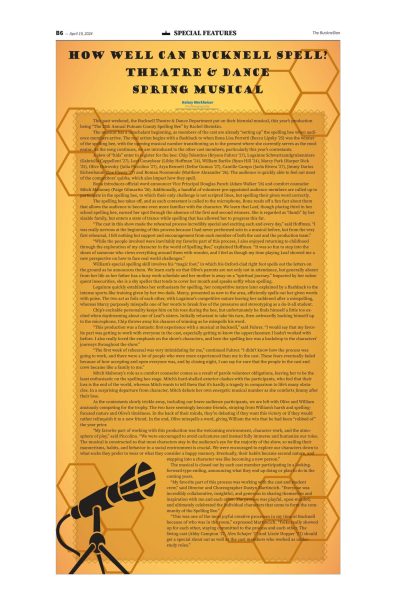Bucknell’s Theatre & Dance department asks audiences “Can We Talk About It?”
February 24, 2023
Bucknell’s Theatre and Dance Department presented “Can We Talk About It?: Recurrence,” a forum theatre performance, on Feb. 17-20. The play was originally conceived by the THEA 390 class of Fall 2022 and was then developed by cfrancis blackchild (instructor of THEA 390) and the performance’s ensemble.
Forum theatre is a form of performance in which the same scene is performed twice, but the audience has the chance to interact with and alter the second scene. In between these two performances, there is a chance for the audience to ask questions to the actors as they remain in character, in order to gain more information that could influence their interactions. In this performance, actors could also be “timed out,” and whatever they told the audience would not be known by the rest of the characters. Then, as the scene restarts, the audience is now allowed to yell “stop!” at any moment they choose and step in as a new character in order to reroute the scene towards a more productive outcome.
“Ultimately, a Forum Theatre play is only finished when the audience, the community’s ‘spect-actors,’ show up and work with the characters to create a better outcome,” blackchild said. “We were fortunate to have engaged audiences throughout the run of the show. It was awesome to watch members of Bucknell apply their problem-solving skills to help the members of the contentious study group find common ground.”
“Recurrence” was written to address social issues at Bucknell, based on the Bucknell University 2011 Campus Climate report. The students of THEA 390 used national data, the research of Bucknell scholars Dr. Bill Flack, Dr. Erica Delsandro, Dr. David Rojas, Hannah Holt and student input to inform their writing. What resulted was a scene based in fictional “Louisburgh University,” in which a group of students from a social justice dinner seminar are tackling a recent incident on campus.
The performance is prefaced by the facilitators, Ariel E. Ulrich ’25 on Feb. 18 and 19, Maya Gurung ’26 and Kaitlyn Carduff ’25 on 17 and 20, explaining the interactive features and the facilitators would then continue to move the show along between scenes and during audience interaction.
“The entire forum theatre process was very interesting for me personally,” read Gurung’s actor’s statement in the program. “I have never been in a show before where I had played the character outside of the scene and was able to voice intentions I have due to things that happen outside the scene.”
The scene begins with characters Hope, a role split by Gurung and Jazmin Ramirez ’23, and Leilani, portrayed by Twity Gitonga ’24, waiting for others to join their class meeting. The group is supposed to be brainstorming responses to a recent incident in which multiple Black History Month bulletin boards have been vandalized and torn in the residence halls, their hall being the most recent. Leilani immediately characterizes herself as a determined social activist, whereas Hope seems concerned about the issue, yet a little resigned due to work pressure from her major and peers.
The first student to join them is Zara (Azhani Duncan-Reese ’23) who clashes with Leilani because she seems disinterested in contributing to the cause. The two are in the middle of a heated argument when Jamie (Carduff/Ulrich) appears at the door, frozen there until Leilani notices her. Jamie stammers out a “hi” before walking across the “room” to get some packets of sugar, and her peers ask if she’s going to stay for the meeting.
Jamie admits she was unaware of the meeting because she hadn’t read their professor’s e-mail, and the others ask Jamie if she’s even aware of the incident. Sitting down, she says that she knew it had happened to other halls but didn’t know it had struck theirs as well. The others accuse the frat brothers that Jamie hangs around of being the perpetrators, which does nothing but rile up the group even more.
“Being able to go so in depth with the characters allowed for some really good questions to be asked,” read Ulrich’s actor’s statement. “I am so grateful that I was granted the opportunity to be a part of this ensemble amongst these other wonderful actors.”
The last to join the meeting is Cam, Brynn Withey ’26, who builds off of the accusations towards Jamie’s friends, insisting that if Jamie knows who it was that she should tell the group. Cam then begins to build her character as a “white savior,” formulating solutions and responses to the incident without consulting the students of color in the room. She mentions that she had been talking with Habitat for Humanity in her hometown, which caused more outrage in the group because they were confused as to how that relates to the issue at hand. Finally, the scene goes dark.
At this point, the audience was able to begin their interaction with the performance and ask the characters questions. The scene then played out again, with audience members yelling out “stop!” (“in the name of love,” blackchild jokes) and step into the scene to change its direction and hopefully reroute it away from the argument that has unfolded. Professors were allowed to step in as themselves, and anyone else was expected to step in as a peer.
“Working on ‘Can We Talk About It?’ has been a really interesting experience, both from a technical perspective and a theatrical one,” James Howe ’23, Stage Manager, said. “As the show went on and I identified more with some of the characters, it was interesting seeing how the audience interacted with them, what they were called out on and the solutions which were offered to them. This allowed me to reflect on my own biases and how I hold myself going through life.”

